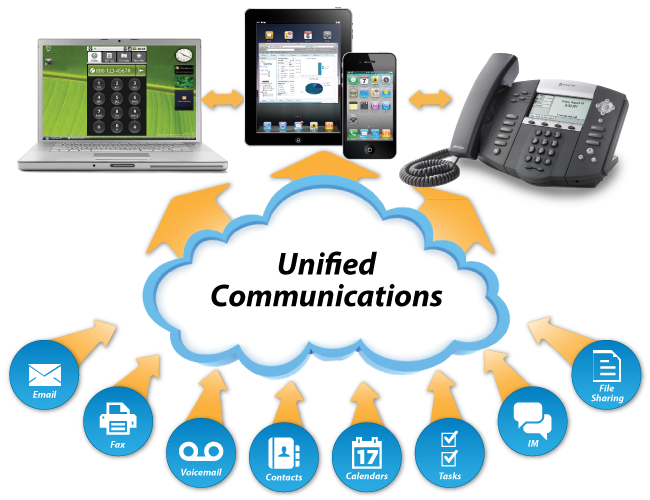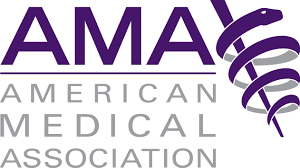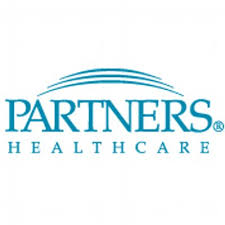EHR usability
See the following -
How EHR Design Can Affect Patient Safety
Besides the importance of physician happiness when using an EHR, using design principles that maximize user intuition and presentation of relevant information, there is one aspect of health care information systems that should never be overlooked: patient safety. Read More »
- Login to post comments
Is Cloud Faxing the Solution to the Health IT Usability and Interoperability Crisis?
 The Healthcare industry is in profound crisis as the HITECH Act of 2009 led medical facilities across the United States to spend in excess of $3 trillion on the purchase and implementation of expensive electronic health records (EHRs) under the Meaningful Use program. Yet, the most fundamental goals of electronic records Nirvana that were promised have not been achieved. For multiple reasons, EHRs have turned out to lack usability and be non-interoperable. In fact, most monopoly EHR vendors are engaged in what is commonly called “data blocking.” In most cases physicians are unable to obtain medical records for the patients they are seeing and patients have a hard time getting a hold of their own medical records. That means that the medical records are not available at the most important moment, the caregiver/patient encounter, and are not available to the patients themselves and their family members.
The Healthcare industry is in profound crisis as the HITECH Act of 2009 led medical facilities across the United States to spend in excess of $3 trillion on the purchase and implementation of expensive electronic health records (EHRs) under the Meaningful Use program. Yet, the most fundamental goals of electronic records Nirvana that were promised have not been achieved. For multiple reasons, EHRs have turned out to lack usability and be non-interoperable. In fact, most monopoly EHR vendors are engaged in what is commonly called “data blocking.” In most cases physicians are unable to obtain medical records for the patients they are seeing and patients have a hard time getting a hold of their own medical records. That means that the medical records are not available at the most important moment, the caregiver/patient encounter, and are not available to the patients themselves and their family members.
- The Future Is Open
- Login to post comments
Is Open Source Tolven the "Dark Horse" of Health IT Platforms?
Is there perhaps a “dark horse” in the EHR field, just poised to challenge the overhyped, slow, clumsy, and expensive leaders of the EHR heat? All the troubles with lack of interoperability and usability of proprietary EHRs have suddenly put the spotlight on what may be the EHR dark horse, the open source Tolven Platform.
- Login to post comments
Is the EHR Market Saturated?
“Hey, the EHR market is saturated, we don’t really think there is any play left there,” this comment came from a reputable venture capitalist (VC) in the healthcare industry. And I sat there wondering what it is that he is talking about. Every single day I am taking calls from doctors who want an EHR that suits them, and they are willing to pay for it.
- Login to post comments
Is the Technology Gap the Reason Why Medical Errors are the 3rd Leading Cause of Death in the US?
 Hardly a day goes by without some new revelation of an information technology (IT) mess in the United States that seems like an endless round of the old radio show joke contest, “Can You Top This” except that increasingly the joke is on us. From nuclear weapons updated with floppy disks, to critical financial systems in the Department of the Treasury that run on assembler language code (a computer language initially used in the 1950s and typically tied to the hardware for which it was developed), to medical systems that cannot exchange patient records leading to a large number of needless deaths from medical errors.
Hardly a day goes by without some new revelation of an information technology (IT) mess in the United States that seems like an endless round of the old radio show joke contest, “Can You Top This” except that increasingly the joke is on us. From nuclear weapons updated with floppy disks, to critical financial systems in the Department of the Treasury that run on assembler language code (a computer language initially used in the 1950s and typically tied to the hardware for which it was developed), to medical systems that cannot exchange patient records leading to a large number of needless deaths from medical errors.
- Login to post comments
Major Interoperability Initiative Launched During the Annual Meeting of The Sequoia Project
 On December 5, 2019, HLN Consulting, LLC participated in The Sequoia Project's day long annual meeting which was held just outside of Washington, D.C. at the Gaylord National Resort & Convention Center. As a leading healthcare informatics consulting company HLN monitors developments in healthcare interoperability nationally with particular emphasis on the impact to public health agencies and their stakeholders. This conference represented a good opportunity to participate in the start of a major interoperability initiative that will play out over the next several years. In addition to this report, the Sequoia Project posted the proceedings of the meeting online, including the recorded discussions as well as the slides from the presentations. Read More »
On December 5, 2019, HLN Consulting, LLC participated in The Sequoia Project's day long annual meeting which was held just outside of Washington, D.C. at the Gaylord National Resort & Convention Center. As a leading healthcare informatics consulting company HLN monitors developments in healthcare interoperability nationally with particular emphasis on the impact to public health agencies and their stakeholders. This conference represented a good opportunity to participate in the start of a major interoperability initiative that will play out over the next several years. In addition to this report, the Sequoia Project posted the proceedings of the meeting online, including the recorded discussions as well as the slides from the presentations. Read More »
- Login to post comments
MedStar Research Team Links Electronic Health Record (EHR) Usability Issues to Potential Patient Harm
 Specific types of electronic health record (EHR) usability issues are associated with a variety of potentially serious patient harm events, according to a study released by MedStar Health researchers with the National Center for Human Factors in Healthcare. This study, which was published today by the Journal of the American Medical Association, is the first one of its kind to reach this conclusion, and it underscores the need for more and better collaboration among EHR vendors, providers and health systems, and other stakeholders, as well as a reexamination of federal policies for improved usability.
Specific types of electronic health record (EHR) usability issues are associated with a variety of potentially serious patient harm events, according to a study released by MedStar Health researchers with the National Center for Human Factors in Healthcare. This study, which was published today by the Journal of the American Medical Association, is the first one of its kind to reach this conclusion, and it underscores the need for more and better collaboration among EHR vendors, providers and health systems, and other stakeholders, as well as a reexamination of federal policies for improved usability.
- Login to post comments
Missing from MACRA: 2 Meaningful Use millstones
 Physicians are now free from reporting on two major Meaningful Use requirements, but some doctors may not be aware of this long-sought change that became effective Jan 1. While it is hard to say how many physicians are in the dark about the change, there are anecdotal reports that some doctors don’t know that the Medicare Access and CHIP Reauthorization Act (MACRA) final rule agreed with AMA’s call to drop computerized physician order entry (CPOE) and clinical decision support (CDS) from Medicare’s payment program. What’s safe to say for certain is that the move comes as relief to physicians, based on surveys measuring their attitudes on electronic health records (EHR) usability in patient care...
Physicians are now free from reporting on two major Meaningful Use requirements, but some doctors may not be aware of this long-sought change that became effective Jan 1. While it is hard to say how many physicians are in the dark about the change, there are anecdotal reports that some doctors don’t know that the Medicare Access and CHIP Reauthorization Act (MACRA) final rule agreed with AMA’s call to drop computerized physician order entry (CPOE) and clinical decision support (CDS) from Medicare’s payment program. What’s safe to say for certain is that the move comes as relief to physicians, based on surveys measuring their attitudes on electronic health records (EHR) usability in patient care...
- Login to post comments
Moving healthcare into a new state of openness
The future of healthcare belongs to social, mobile, analytics and the cloud. Although most industries have embraced these technologies, the healthcare IT industry has been slow to adopt them. The country has taken good first steps to digitize the paper-based medical industry, but now it is time to build on what we've done, enhancing usability, better engaging patients/families, and preparing for the future of reimbursement, which is based on value, not more healthcare.
- Login to post comments
New $1.2b Partners Epic System a Prescription for Frustration
 The demands of the new system are so taxing and time-consuming, Lydon said, that the computer has come between her and her patients.More than once, Lydon says, she has burst into tears on the drive home. “I know people throughout the hospital, and they find the same thing: it’s tedious, labor intensive, and you feel like you can’t do what you want to do,” said Lydon, a nurse for more than 30 years...
The demands of the new system are so taxing and time-consuming, Lydon said, that the computer has come between her and her patients.More than once, Lydon says, she has burst into tears on the drive home. “I know people throughout the hospital, and they find the same thing: it’s tedious, labor intensive, and you feel like you can’t do what you want to do,” said Lydon, a nurse for more than 30 years...
- Login to post comments
Nine types of Usability Problems w/EHRs
 There is no shortage of complaints about the usability of Electronic Health Record systems (EHRs). More and more evidence is emerging regarding the lack of EHR usability. Speaking at the 2013 Healthcare Information and Management Systems Society (HIMSS) Conference & Exhibition, Michael S. Barr, MD, MBA, FACP, of the National Committee for Quality Assurance (NCQA) warned that: “Satisfaction and usability ratings for certified electronic health records (EHRs) have decreased since 2010 among clinicians across a range of indicators.” Barr’s presentation at HIMSS focused on “ the need for the Meaningful Use program and EHR manufacturers to focus on improving EHR features and usability.”
There is no shortage of complaints about the usability of Electronic Health Record systems (EHRs). More and more evidence is emerging regarding the lack of EHR usability. Speaking at the 2013 Healthcare Information and Management Systems Society (HIMSS) Conference & Exhibition, Michael S. Barr, MD, MBA, FACP, of the National Committee for Quality Assurance (NCQA) warned that: “Satisfaction and usability ratings for certified electronic health records (EHRs) have decreased since 2010 among clinicians across a range of indicators.” Barr’s presentation at HIMSS focused on “ the need for the Meaningful Use program and EHR manufacturers to focus on improving EHR features and usability.”
- Login to post comments
Nurses Not Happy With Hospital EHRs
'A poorly implemented EHR with chaotic processes and bungling IT support is becoming a detriment to hospital nurse retention and recruitment'...
- Login to post comments
O'Reilly Report Explores Open Solutions to Health IT
Although many programmers and public interest advocates come to the concepts of free software, standards, open data, and transparent institutions out of idealism, modern businesses and governments are being driven to these same solutions out of the practical need to meet high expectations with diminishing resources. The ways in which the health care field has been incrementally adopting these paths are the subject of a new report, written by me and released by O'Reilly Media, called The Information Technology Fix for Health: Barriers and Pathways to the Use of Information Technology for Better Health Care. Read More »
- Login to post comments
On the Need for Human-Centered Design in EHRs
 Health information technology (HIT) has become the hottest political issue in Washington. The healthcare industry in the United States is facing a crisis as medical facilities have spent hundreds of billions of dollars implementing electronic health record (EHR) systems, yet patients and the physicians and nurses that care for them are seeing few benefits. Congress has been holding hearings focused on detailing the problems and trying to write legislation that will provide a solution to the crisis. The HIT interoperability bill drafted by Rep. Michael C. Burgess (R-TX) is one example. These are welcome first steps. However, none of the bills currently before Congress, and none of the hearings, are addressing the two most important issues facing medical providers today. These are lack of EHR usability, and the inability to have a patients’ entire medical record at the point of care.
Health information technology (HIT) has become the hottest political issue in Washington. The healthcare industry in the United States is facing a crisis as medical facilities have spent hundreds of billions of dollars implementing electronic health record (EHR) systems, yet patients and the physicians and nurses that care for them are seeing few benefits. Congress has been holding hearings focused on detailing the problems and trying to write legislation that will provide a solution to the crisis. The HIT interoperability bill drafted by Rep. Michael C. Burgess (R-TX) is one example. These are welcome first steps. However, none of the bills currently before Congress, and none of the hearings, are addressing the two most important issues facing medical providers today. These are lack of EHR usability, and the inability to have a patients’ entire medical record at the point of care.
ONC’s John Fleming Wants Patients to Have a Single Unified Health record
A senior administrator with the Office of the National Coordinator for Health IT said he wants patients to have a unified health record that could pull data from various medical providers into a single record. John Fleming, the ONC’s deputy assistant secretary for health technology reform, outlined his vision that would give patients more control of their medical information during the International Summit on the Future of Health Privacy hosted by Georgetown University Law...
- Login to post comments